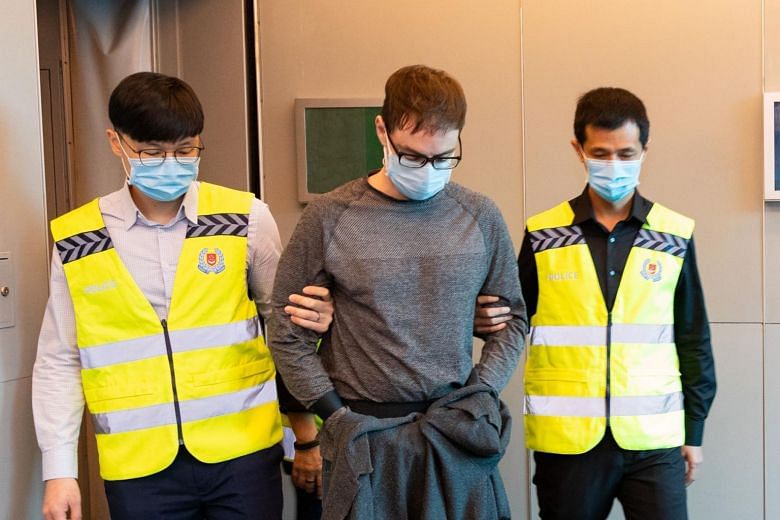Parliament passes amendments to Singapore's extradition laws
Sign up now: Get ST's newsletters delivered to your inbox

The objective of the amendments was to modernise Singapore's extradition regime.
PHOTO: ST FILE
SINGAPORE - Fugitives in Singapore wanted by foreign states will be able to consent to their extradition following changes to the Extradition Act on Monday (April 4).
This mechanism will save state resources and prevent fugitives from being detained longer than necessary here, Second Minister for Law Edwin Tong told Parliament.
Mr Tong said the objective of the amendments was to modernise Singapore's extradition regime, adding that they strike the right balance between international cooperation and individual liberty.
"This will enhance Singapore's credibility as a responsible international citizen, to strengthen our ability to combat crime through international cooperation, ensure that Singapore is better able to facilitate extradition where justified, and secure the return of fugitives who have committed offences in Singapore," added Mr Tong.
Several safeguards were also introduced to enhance Singapore's ability to facilitate extradition requests and protect individuals wanted by foreign jurisdictions.
They include the implementation of the threshold approach, which makes an offence extraditable if it attracts a maximum punishment of at least two years, subject to a list of excluded offences.
Mr Tong said the threshold approach will make it easier to determine when an offence is extraditable.
He noted that when the Act was first introduced in 1968, it took a positive list approach, where only offences on the list were extraditable.
This was the norm at the time, but many jurisdictions, including Australia, Canada and Malaysia, have since adopted the threshold approach, he said.
"We do not expect this amendment to result in an undue increase in incoming extradition requests," added Mr Tong.
"From our experience, our extradition partners have made requests in respect of relatively serious offences."
Singapore has extradition agreements or treaties with Germany, the United States and Hong Kong, and is also part of extradition arrangements with 40 Commonwealth territories, including Australia, Britain and Canada.
There are also reciprocal arrangements with Brunei and Malaysia for the endorsement of arrest warrants.
Mr Tong said Singapore has also signed a treaty with Indonesia, which when in force, will allow fugitives to be extradited to and from Indonesia.
The amendments also see the expansion of safeguards in which extradition requests may be refused.
These include refusing requests if a fugitive is convicted in his absence, is being prosecuted for military offences, only has a short jail term remaining, or if the prosecution of a fugitive in the requesting state is barred owing to a limitation period.
A mechanism that allows the Attorney-General to apply to the High Court to review a magistrate's decision not to commit a fugitive for extradition has also been introduced.
In the past decade, there have been four extraditions back to Singapore and eight extraditions from Singapore to the requesting state.
Canadian David James Roach was extradited from Britain in 2020 for robbing Standard Chartered Bank, while Singaporean Andy Quek Sze Leng was extradited from Hong Kong in 2018 for his role in a SkillsFuture scam.

Australian Christopher Elkhouri was extradited to Australia in 2018 for dealing in stolen property, while Indian national Hitesh Madhubhai Patel was extradited to the US in 2019 for fraud and embezzlement.
Ms Sylvia Lim (Aljunied GRC) had asked Mr Tong how the changes would affect existing extradition arrangements for retrospective applications, if significant time has passed since the alleged offence has occurred.
Mr Tong replied that this would be subject to the wording of the relevant treaties.
He added that the amendments take into account developments in international practice.
"Extradition is an essential component of international law enforcement and plays a key role in upholding the rule of law," he said.
"With these amendments, Singapore will enhance its ability to combat crime through international cooperation."


